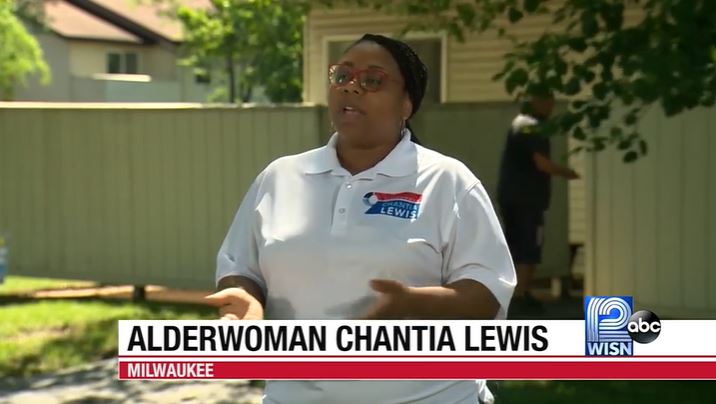A new task force in Milwaukee will study ways to send unarmed responders to some calls now handled by police.
“Instead of having an officer with a gun, or a person with a gun showing up to a very volatile mental health crisis, we need someone who is trained to defuse those situations,” Milwaukee Ald. Chantia Lewis said in an interview aired Sunday on “UpFront,” produced in partnership with WisPolitics.com.
Lewis said the task force will look at what other cities are doing and collect data on what kind of calls unarmed first responders could handle.
She said some police officers might welcome the idea.
>> WisPolitics is now on the State Affairs network. Get custom keyword notifications, bill tracking and all WisPolitics content. Get the app or access via desktop.
“They’ve been thrown into all of these other duties, which is outside of their scope of training. And so we should not expect them to do the job of a social worker. You didn’t go to school to be a social worker. You went to school or to the academy to be an officer. And so dividing the lines of duty, I think that is something that is going to be beneficial not just for the community, but for the officers as well,” Lewis said.
She said the task force will report its findings and recommendations back to the Milwaukee Common Council. Lewis said she expects that to happen in six months to a year from now.
Also on the program, an epidemiologist from UW-Madison said he is not concerned that the nation missed President Biden’s goal of having 70 percent of the population vaccinated for Covid-19 by July 4th.
Dr. Ajay Sethi of UW’s Population Health Sciences program noted the country is just shy of the goal.
“Sometime in July, as a country, we certainly will reach the 70 percent mark,” Sethi said.
He said the goal is to keep vaccinating, even though some people are resistant to getting the vaccine.
“Slowly but surely, people do, their opinions can be swayed. And that’s hard work. But that’s what we have to continue to do,” Sethi said.
Sethi said the huge number of vaccinations given worldwide, with a low number of adverse reactions, shows the vaccine is safe.
“I’m still pretty confident the public sees the vaccines as highly safe and very effective,” he said.
In another segment, Department of Transportation Secretary Craig Thompson said people will see improvements at the local level if the infrastructure plan President Biden negotiated with Republicans passes.
“If we get more federal money, I think people will see simply the condition of the roads, both at the state and local levels, improve,” Thompson said.
Biden touted the nearly $1 trillion plan at a stop last week in La Crosse.
Thompson said the Evers administration has stopped the trend of “disinvestment and neglect” in Wisconsin’s roads. But he said “you don’t reverse that in two and a half years.”
“I believe we have stopped the decline in the condition of our state highways. We’ve gotten more money to the locals. But we’ve got 115,000 miles of roads in this state and 90 percent is owned by the locals. They just have a lot of roadway and they’ve got a long way to go,” Thompson said.
He also said the DOT is aiming to begin work on the I-94 East-West corridor in Milwaukee by the end of 2022 after federal approval has been granted. He called it one of the most dangerous stretches of highway in the state, with a crash rate greater than other areas.
See more from the program:
http://www.wisn.com/upfront

